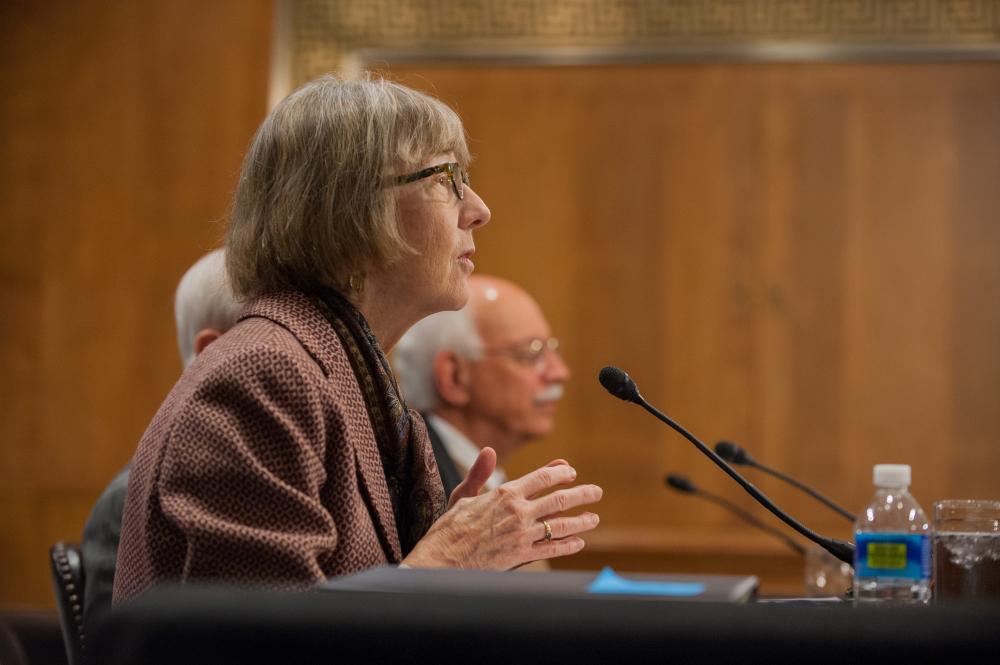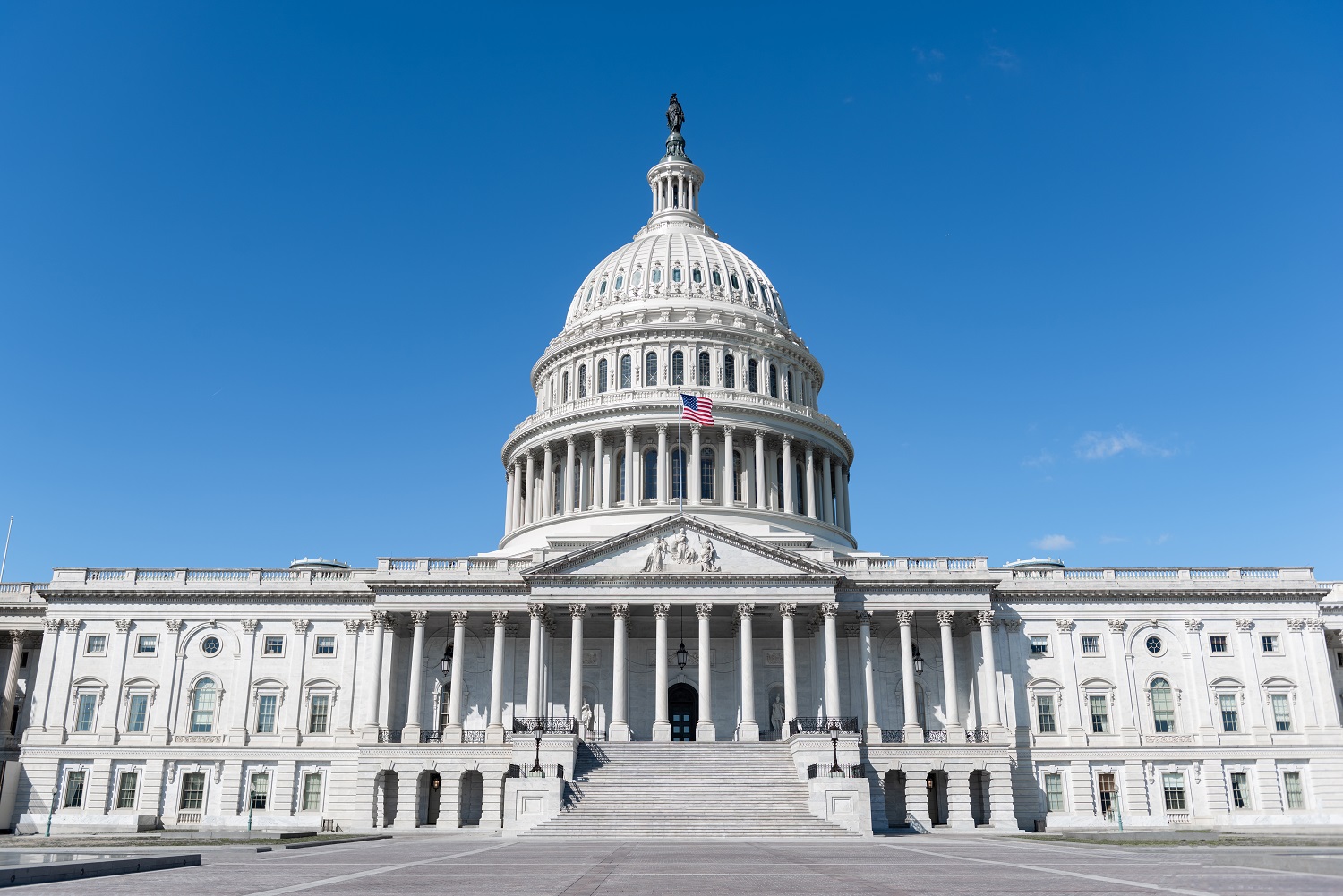Related: Birdsall’s written testimony | Video of the hearing | MCC country selection paper

Earlier this week, CGD president Nancy Birdsall testified before the Senate Foreign Relations Committee at a hearing on the Millennium Challenge Corporation. A main impetus for the hearing was the introduction this summer of legislation (S. 1605) that would enable MCC to pursue regionally-focused investments with eligible countries. The hearing itself, however, was wide-ranging, covering the “current operations and authority” of MCC.
All in all, I found the hearing to be largely supportive and constructive for the agency. Here’s what I was glad to hear, what I wish I had heard...and what I could have heard less of.
What I was glad to hear:
-
Support for MCC’s model: Members and witnesses alike articulated what they thought was important about MCC and its model—emphasizing the agency’s focus on poverty reduction and growth; its prioritization of policy performance in selecting partner countries; its commitment to transparency and accountability; its country-led approach; and its focus on results.
-
A push on results: I was particularly glad to hear members ask about the agency’s record on results, including MCC’s record on projects’ economic rates of return (ERR). Given the agency’s recent desire to hurry the Tanzania compact ahead before analyzing its economic viability, I was glad to hear MCC CEO Dana Hyde reiterate the importance of rigorous economic analysis for accountably identifying growth-focused projects (including for Tanzania). Nancy took a different angle, pushing the agency to further its efforts to adopt pay-for-performance approaches.
-
Favorable views toward a regional approach: There was broad consensus among the independent witnesses that MCC should be given the authority to invest regionally. Members’ questions were also generally supportive, focused on how MCC would implement such an approach in line with its model of country selectivity, ownership, and accountability for results. My stance has been that while there is a strong economic case for regional compacts—and MCC should be able to tackle cross-border growth constraints—implementation will not be straightforward. So I was also glad to hear Hyde acknowledge the heightened risk and complexity of regional programs and commit MCC to proceeding slowly and cautiously.
-
Consideration of the need to redefine “poor”: Both Nancy and Hyde noted that the current, legislated definition of candidate countries excludes lots of countries that are, by most reasonable assessments, still very poor. Other metrics, like median income, could create a more sensible pool of candidates that better reflects the significant poverty and development need in potential partner countries. Any change to the existing definition would require congressional action, so it was encouraging to see receptivity to the points raised.
- A nuanced view of the selection indicators: It was nice to hear real discussion of the strengths and limitations of the indicators MCC uses to assess countries’ policy performance—especially the Control of Corruption indicator. Congress is rightly concerned about corruption in MCC partner countries, but, as I’ve repeatedly argued (here and here, too), there are negative consequences to strict interpretation of an imprecise measure. I was glad to hear constructive questions about the data and possible alternatives rather than simple admonitions to be tougher on corruption.
What I wish I heard more of:
- Discussion about (and support for) subsequent compacts: One of the key points in Nancy’s testimony was that Congress should support MCC’s involvement in a single country over a longer time horizon. Development takes far longer than 5 years, even with a great partnership. As such, second compacts—and potentially beyond—should not be automatic but should be welcomed where warranted. This topic wasn’t covered outside of Nancy’s testimony, but—to the extent that some members of Congress are still reluctant about this approach—the hearing could have been a nice opportunity to talk about why it’s a smart way forward for MCC.
What I could have heard less of:
-
The “MCC Effect”: Perhaps because the agency does not yet have a robust catalog of results, when asked about its impact, the agency regularly points to how its scorecards have incentivized countries to make policy changes to secure MCC eligibility before a single dollar is spent. There are some real, concrete examples of MCC’s country selection system contributing in some way to reform conversations (for example, here and here). But for MCC really to call itself effective, the so called “MCC Effect” cannot be the totality of its impact. I was glad to hear Hyde talk about MCC’s end-of-project rates of return, and even its limited (and mixed) evaluation record (in response to Perdue’s (R-GA) pointed question, “what’s been the poverty reduction” of MCC’s compacts?). I think much greater focus on these metrics, as well as the ways MCC programing influences sector-specific reforms, is warranted.
- State’s heavy hand in MCC eligibility decisions: MCC’s record on selection simply does not bear this out as a major concern. The cases referenced—Georgia and Jordan (the latter not mentioned by name, but strongly alluded to)—are old news. They reflect decisions made 12 and 9 years ago, respectively (Georgia was selected despite not passing the scorecard; Jordan did pass but was not a democracy, a factor the board has always weighed heavily, even before making democracy an official “hard hurdle”). In fact, a review of the agency’s overall country selection record suggests that policy performance has indeed been the main criterion for eligibility. A few eligibility decisions have appeared to support broader US government political and diplomatic interests in a way that is not entirely consistent with the spirit of MCC’s criteria, but most of these choices were in the agency’s early days and/or were for the smaller threshold program.
I applaud SFRC for holding a hearing on MCC. It was an excellent opportunity to hear a variety of perspectives on some of the key issues the agency is facing in its second decade. In case you missed the excitement, a video is available.
Disclaimer
CGD blog posts reflect the views of the authors, drawing on prior research and experience in their areas of expertise. CGD is a nonpartisan, independent organization and does not take institutional positions.





